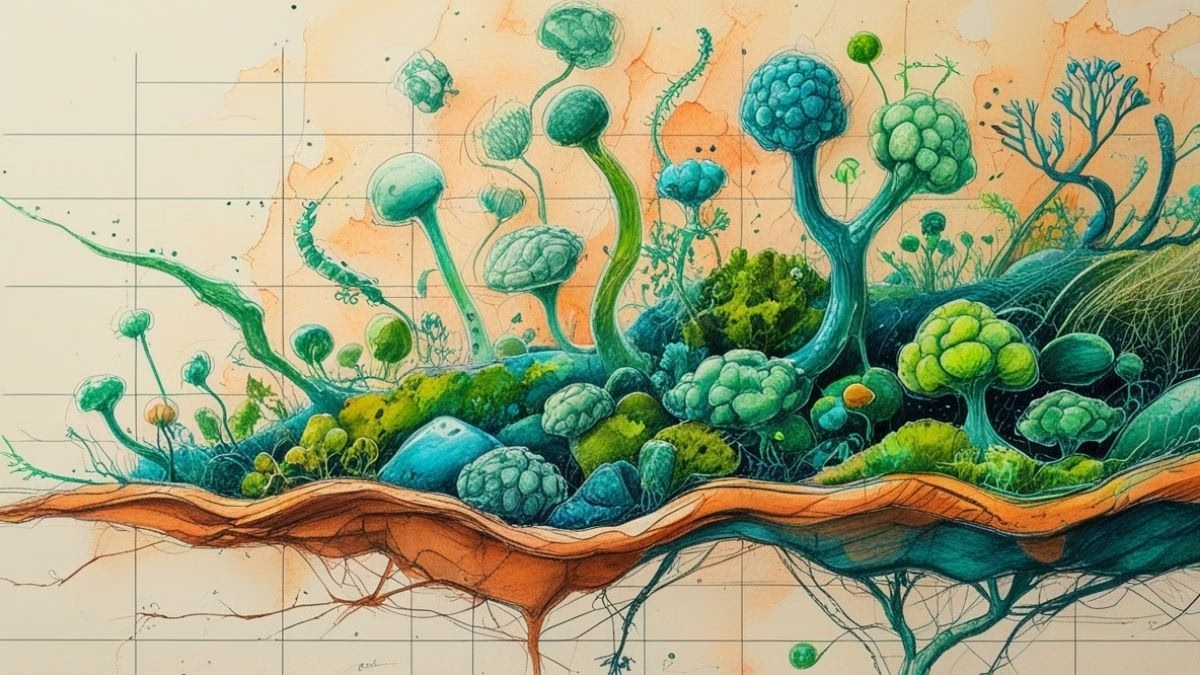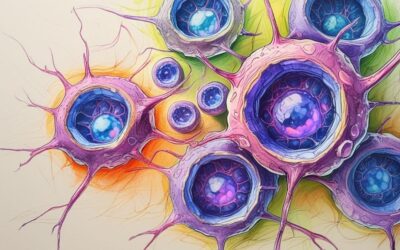SparkCast Episode
The SparkCast episode is not just a reading of the article below; it’s a lively discussion based on the topic of the article, so you don’t want to miss it!
[ppp_patron_only level=5]
[/ppp_patron_only]
Are You Sure You’re Alone Right Now?
Take a look at your hands. They look like your hands, right? But what if I told you that on and inside your body right now, there are trillions—that’s trillions with a “T”—of microorganisms living their best lives? This bustling, invisible world of bacteria, viruses, and fungi that calls you “home” has a beautiful name: the human microbiome. And understanding it is one of the most optimistic and practical ways to rethink our own health, revealing that we are not just individuals, but living, breathing ecosystems.
A Rainforest Within You
So, what is this microbiome? Forget the idea of nasty “germs” that must be destroyed. Think of your body, especially your gut, as a lush, vibrant rainforest. A healthy rainforest has thousands of different species of plants, animals, and insects all living in a complex, balanced harmony. Your microbiome is the same. It’s a diverse community of microscopic creatures that have evolved with us for millennia in a symbiotic relationship. We give them a safe place to live and plenty of food, and in return, they do a shocking amount of work for us.
Your Inner Alchemists and Personal Chefs
One of the microbiome’s biggest jobs is digestion. When you eat, especially fiber-rich foods like fruits, vegetables, and grains, your own human cells can’t break it all down. But for your gut microbes, that fiber is a gourmet feast. They ferment these fibers and, in the process, they perform a kind of alchemy. They transform what you can’t use into incredibly beneficial compounds, like short-chain fatty acids that nourish your gut lining and essential vitamins like B12 and K that your body can’t make on its own. They are your personal microscopic chefs, finishing the cooking process right inside you.
The Gut-Brain Superhighway
Here is where it gets truly mind-blowing. Your gut is often called your “second brain,” and there’s a very real superhighway of nerves and chemical signals connecting it directly to the brain in your head. And who’s sending a lot of the traffic on that highway? You guessed it: your microbiome. These microbes can produce neurotransmitters, the exact same chemicals—like serotonin and dopamine—that regulate your mood. A healthy, diverse gut microbiome is linked to better mental clarity and a more stable mood, while an imbalanced one is associated with issues like anxiety and depression. Taking care of your gut is literally taking care of your mind.
How to Be a Gracious Host
The beauty of the human microbiome is that you have the power to shape it. You are the gardener of your own inner ecosystem. So how do you cultivate a beautiful, thriving garden?
- Eat the Rainbow: Diversity is key. The more different types of plant foods you eat, the more diverse and resilient your microbiome becomes.
- Love Fermented Foods: Things like yogurt, kefir, sauerkraut, and kimchi are full of beneficial bacteria (probiotics) that can add new, friendly species to your community.
- Rethink “Squeaky Clean”: While handwashing is great, living in a hyper-sterilized environment can be bad for your microbiome. Don’t be afraid to get your hands a little dirty in a garden or spend time in nature. It’s a great way to meet new friendly microbes!
What’s one thing you can do this week to be a better host to your microbiome? Share your ideas in the comments below!
Deep Discussion Questions:
- How does the idea of being an “ecosystem” rather than just an “individual” change the way you think about your body and your health?
- Now that you know about the gut-brain axis, have you ever noticed a link between what you eat and how you feel emotionally or mentally?
- What are some of the pressures in modern life (e.g., stress, processed foods, antibiotics) that might be harming our collective human microbiome?
Speaking Challenge:
In 60 seconds, explain the concept of the human microbiome to someone who has never heard of it. Use the “rainforest” or “garden” analogy to make it easy to understand.
Hint for English Learners: Focus on simple, positive language. “Think of your body like a garden…” “These tiny helpers do amazing things for us…” “We can help them by eating…” Analogies are your best friend when explaining a complex scientific topic.










0 Comments